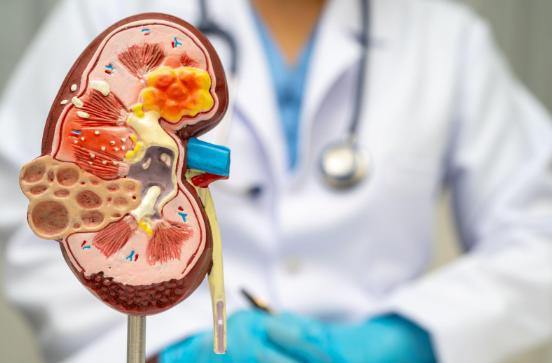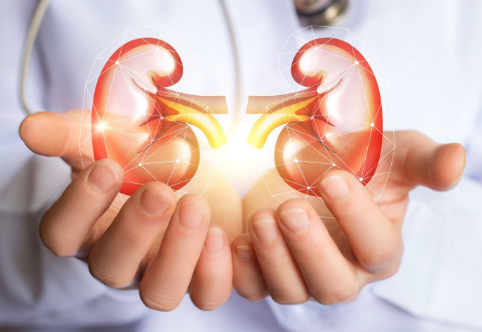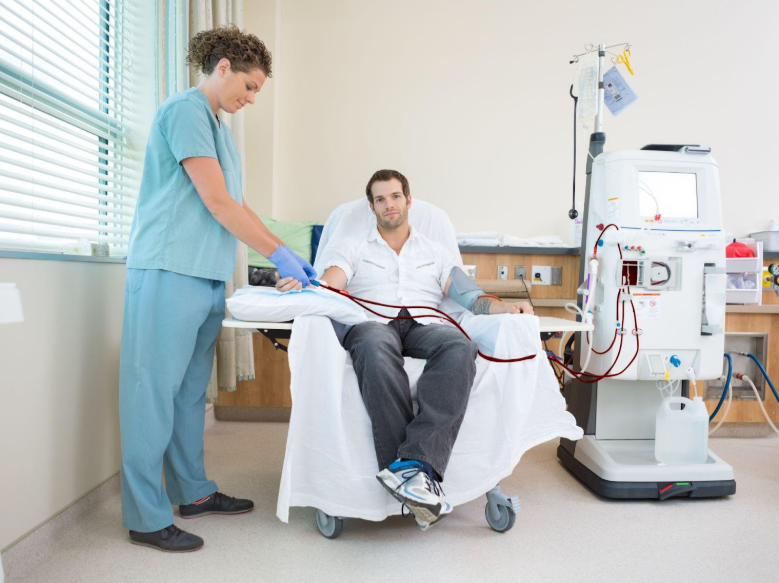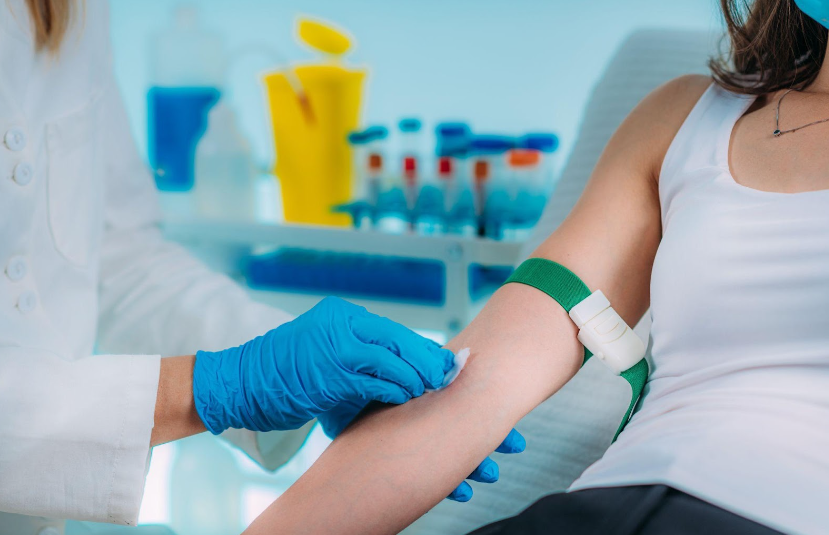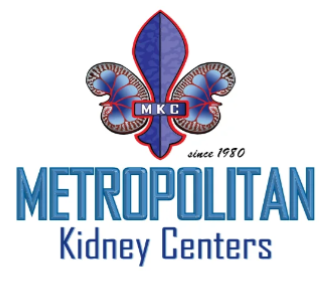Understanding Heat Risks for Kidney Disease and Dehydration
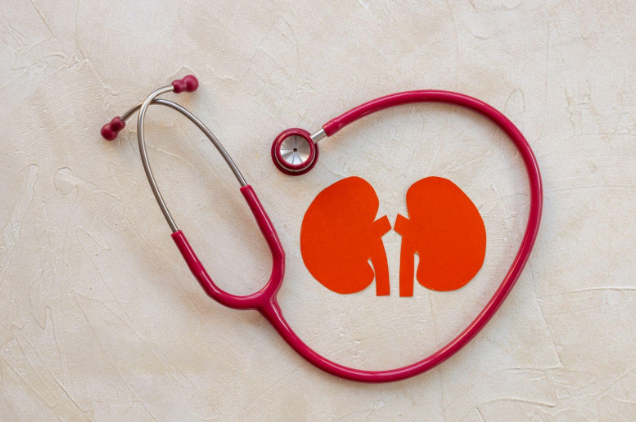
Your body can suffer greatly from hot weather, particularly if you have kidney disease. Whether you're in early-stage chronic kidney disease (CKD), on dialysis, or living with a kidney transplant, heat exposure increases the risk of dehydration, electrolyte imbalance, and sudden declines in kidney function.
You can take preventative measures to keep yourself safe and stable during the warmer months by being aware of the ways that heat stress and kidney disease interact.
The Physiology of Heat and Kidney Function
The kidneys filter waste, control blood pressure, and maintain electrolyte balance. In hot weather, fluid loss through sweat increases, which can be dangerous for individuals with kidney disease. Reduced fluid levels strain kidney function, increasing the risk of acute kidney injury (AKI).
Dehydration limits blood flow to the kidneys, hindering waste removal and disrupting electrolyte balance. It can also raise cardiovascular stress and promote kidney stone formation, worsening kidney health.
Recognizing the Signs of Dehydration in Kidney Disease
For dialysis patients, unexpected weight loss between sessions may also signal dehydration. Monitoring the below symptoms enables timely intervention and prevents further complications.
- Persistent Thirst: A clear signal from your body that it needs more fluids; often the first sign of dehydration.
- Dark Yellow or Amber Urine: When you're dehydrated, your urine becomes more concentrated, turning dark yellow or amber. This change shows your kidneys are conserving water due to limited fluid intake.
- Fatigue and Dizziness: Dehydration can lower your blood pressure and reduce circulation, which often results in tiredness, weakness, or feeling lightheaded, especially when standing up or moving around.
- Dry Mouth and Skin: If your lips are dry, your mouth feels sticky, or your skin appears dull and flaky, these may be signs your hydration is too low.
- Decreased Urine Output: Producing less urine than usual is a warning sign, especially if you're not increasing your fluid intake. It shows your kidneys are working harder to conserve water.
Mechanisms Linking Heat Stress to Kidney Injury
Exposure to high temperatures can lead to kidney damage through multiple physiological pathways, especially if you are already at risk due to chronic conditions or limited fluid intake.
Dehydration-Induced Hypoperfusion
When the body loses fluids through sweat without adequate replacement, blood volume decreases. This reduction limits the amount of blood reaching the kidneys, a condition known as renal hypoperfusion. Over time, this can result in ischemic injury, where kidney tissues are damaged due to insufficient oxygen and nutrient delivery.
Electrolyte Imbalances
Excessive sweating during heat exposure leads to a significant loss of electrolytes such as sodium and potassium. When these levels drop, muscle function and cellular processes are disrupted. In severe cases, electrolyte imbalance can contribute to rhabdomyolysis, a condition where muscle breakdown products enter the bloodstream and put added strain on the kidneys.
Inflammatory Responses
Heat stress can compromise the gut barrier, increasing permeability and allowing harmful substances like endotoxins to leak into the bloodstream. This triggers systemic inflammation, which can impair kidney function and increase the risk of acute kidney injury, especially when combined with dehydration or infection.
Oxidative Stress
High temperatures can also stimulate metabolic activity that generates reactive oxygen species. These unstable molecules cause oxidative stress, damaging kidney cells and blood vessels. Prolonged exposure to oxidative damage weakens renal tissue and contributes to the progression of kidney disease.
Advanced Strategies for Managing Fluid Balance
Maintaining proper fluid balance during hot weather requires a targeted, medically supervised approach that accounts for your unique health status and treatment plan. You can take these steps:
Dialysis Intensifies Sensitivity
If you're on hemodialysis, heat increases your risk of dehydration. Dialysis removes fluid from your body, and added loss through sweating can lead to low blood pressure, cramping, or fainting.
If you are a
peritoneal dialysis (PD) patient, you face different concerns; higher temperatures raise the risk of contamination during exchanges, which can lead to infections like peritonitis. Managing exchange environments and maintaining hygiene become even more important in hot conditions.
Extra Hydration Awareness
Immunosuppressants can reduce your body’s ability to regulate heat and limit your thirst response. Combined with heat-related infection risks, especially UTIs, this makes hydration and medication safety critical during warmer months.
Consistent fluid intake, sun protection, and regular monitoring for signs of infection are key. Medications must also be stored within safe temperature ranges.
Remote Monitoring Tools
Digital tools make it easier to manage kidney care without frequent clinic visits. Wearables, apps, and virtual consultations allow you to track weight, blood pressure, and symptoms daily. These insights help your care team adjust dialysis, medication, or fluid recommendations quickly, reducing the risk of heat-related issues.
Lab Tests
Routine lab work is essential in identifying heat-related complications early. Blood and urine tests help track hydration and electrolyte levels. Providers may monitor markers such as creatinine, eGFR, sodium, potassium, and urine-specific gravity to adjust care plans as needed before symptoms escalate.
Customized Plans
Kidney care must be adapted for hot weather. Adjustments to dialysis schedules, fluid limits, electrolyte intake, and medication timing can help prevent complications. A personalized summer plan gives you clear steps for staying safe without disrupting your treatment goals.
Kidney-Friendly Nutrition
Smart food choices can help you stay hydrated while meeting dietary restrictions. Low-potassium vegetables like cucumbers and lettuce, and carefully portioned fruits such as strawberries or watermelon (if permitted), provide water without overloading the kidneys.
Homemade ice pops made from approved fluids are a safe way to cool down. Always follow a diet plan created with your dietitian.
Transportation and Care Access
High temperatures can make it harder to get to dialysis or clinic appointments, especially without reliable air conditioning. Missing treatments increases your health risk. Explore options like home dialysis, telehealth visits, and community cooling centers. Always have a backup plan in case of power outages or transportation issues.
Reduce Emergency Risks
Staying informed helps you prevent heat-related health issues. Daily weight checks, hydration reminders, and symptom tracking help you notice changes early. Keep an open line of communication with your care team and review how to adjust routines during heatwaves so you can act quickly and safely.
For expert guidance tailored to your unique kidney care needs, connect with our specialists at
Metropolitan Kidney Centers. Whether you need a fluid management review, updated medication advice, or a customized summer wellness plan, our experienced nephrologists are here to help.
Schedule a consultation and take the next step in protecting your health year-round.
